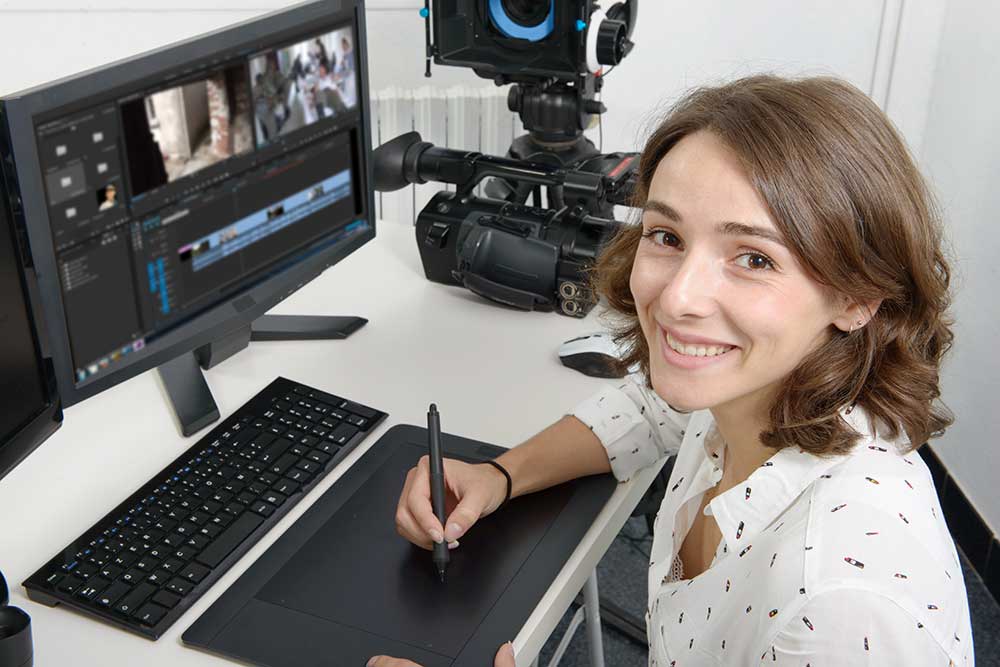Disclaimer: The information on our website is provided for general information purposes only. We make no representations or warranties of any kind, express or implied, about the completeness, accuracy, reliability, suitability or availability with respect to the website or the information contained on our website for any purpose. Any reliance on such information is therefore strictly at your own risk and we are not liable for any damages or losses arising out of or resulting from your reliance on any information contained on our website.
A film editor edits footage for all types of projects such as tv shows, commercials, films, and internet videos. Additionally, editors work closely with film or commercial directors to ensure the edits reflect the director’s vision. Watch a video to learn what a film editor does:
How to Become a Video Editor
Though a bachelor’s degree is not required, many editors do hold a bachelor’s degree. A degree in a related field such as broadcasting or film can be helpful. Colleges with these degree programs offer courses in video editing software, videography, and film theory. Those with work experience may be able to gain employment without a degree.
Job Description of a Video Editor

Video editors relay the director’s vision when editing footage for documentaries, motion pictures, music videos, television programs, sporting events, or news. They must organize the footage and meet with the directors to understand the total concept of the overall vision for the project and inform the director of editing techniques that may improve the overall product.
Video editors must be proficient in linear editing software. Common software used is in this industry includes Avid Media Composer, Final Cut Pro, Adobe After Effects, and Adobe Premiere Pro. This software is used to edit, select, and splice together content. It also assist in sequencing, music integration, and the syncing of raw footage to create the final product. Most video editors work in office settings or studios. This consists of private spaces and often times video editors sit alone in front of several computer monitors. Larger projects may also have assistants helping them.
Film Editor Career Video Transcript
“Cut!” While credit for a film’s success may go to the director, it’s often editors who turn hours of raw footage into an enjoyable blockbuster movie. Film and video editors select and cut film and video footage of actors and settings and arrange it into stories with a clear sequence and meaning or to achieve certain emotional or psychological effects. These film professionals often look closely frame by frame to ensure that the final product achieves the desired impact.
An editor might work at a Hollywood studio, spending hours alone in the editing booth, or in an office producing video content for a media company. Many editors work in motion picture and video industries or in television broadcasting, and some are self-employed. Editors need creativity and the ability to work collaboratively with producers and directors to achieve a common vision.
Most jobs require a bachelor’s degree in a field related to film or broadcasting. As in most industries, technology has had a profound impact. Today, most editing is performed digitally using specialized software. Film editors typically choose to specialize in one type of software, and some employers offer training in the type of specialized editing software they use. Internet-based video creation services have provided additional platforms and opportunities for editors.
Article Citations
Bureau of Labor Statistics, U.S. Department of Labor, Occupational Outlook Handbook, Film and Video Editors and Camera Operators.
National Center for O*NET Development. 27-4032.00. O*NET OnLine.
The career video is in the public domain from the U. S. Department of Labor, Employment and Training Administration.

